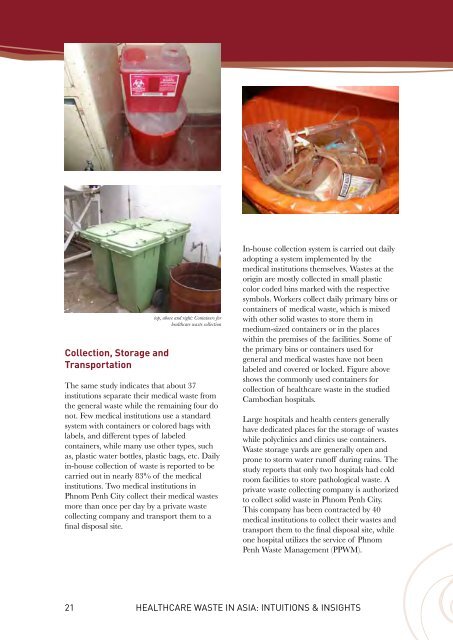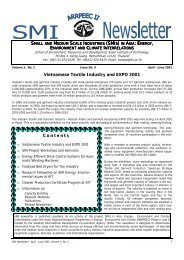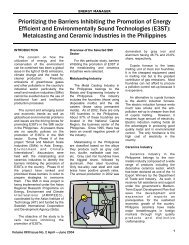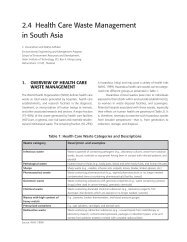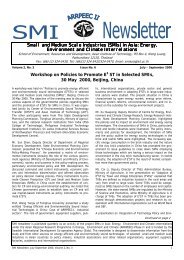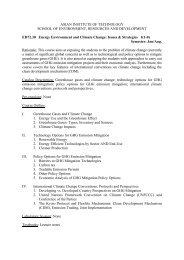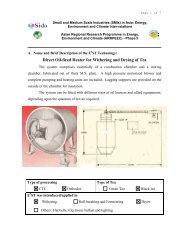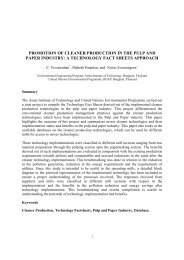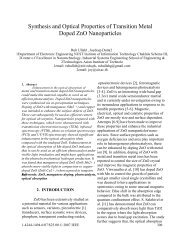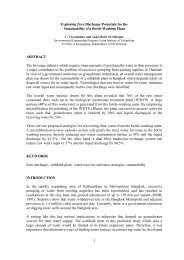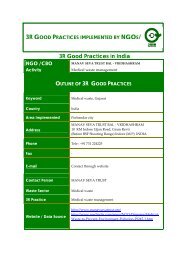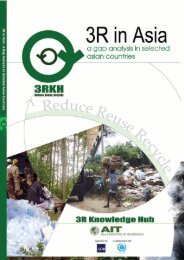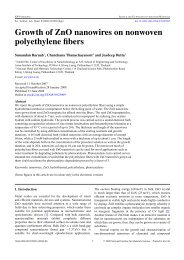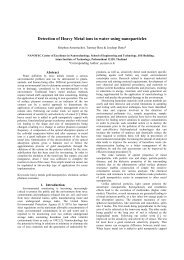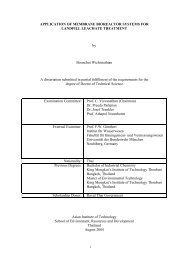Healthcare Waste Report - Environment Health
Healthcare Waste Report - Environment Health
Healthcare Waste Report - Environment Health
You also want an ePaper? Increase the reach of your titles
YUMPU automatically turns print PDFs into web optimized ePapers that Google loves.
Collection, Storage and<br />
Transportation<br />
top, above and right: Containers for<br />
healthcare waste collection<br />
The same study indicates that about 37<br />
institutions separate their medical waste from<br />
the general waste while the remaining four do<br />
not. Few medical institutions use a standard<br />
system with containers or colored bags with<br />
labels, and different types of labeled<br />
containers, while many use other types, such<br />
as, plastic water bottles, plastic bags, etc. Daily<br />
in-house collection of waste is reported to be<br />
carried out in nearly 83% of the medical<br />
institutions. Two medical institutions in<br />
Phnom Penh City collect their medical wastes<br />
more than once per day by a private waste<br />
collecting company and transport them to a<br />
final disposal site.<br />
In-house collection system is carried out daily<br />
adopting a system implemented by the<br />
medical institutions themselves. <strong>Waste</strong>s at the<br />
origin are mostly collected in small plastic<br />
color coded bins marked with the respective<br />
symbols. Workers collect daily primary bins or<br />
containers of medical waste, which is mixed<br />
with other solid wastes to store them in<br />
medium-sized containers or in the places<br />
within the premises of the facilities. Some of<br />
the primary bins or containers used for<br />
general and medical wastes have not been<br />
labeled and covered or locked. Figure above<br />
shows the commonly used containers for<br />
collection of healthcare waste in the studied<br />
Cambodian hospitals.<br />
Large hospitals and health centers generally<br />
have dedicated places for the storage of wastes<br />
while polyclinics and clinics use containers.<br />
<strong>Waste</strong> storage yards are generally open and<br />
prone to storm water runoff during rains. The<br />
study reports that only two hospitals had cold<br />
room facilities to store pathological waste. A<br />
private waste collecting company is authorized<br />
to collect solid waste in Phnom Penh City.<br />
This company has been contracted by 40<br />
medical institutions to collect their wastes and<br />
transport them to the final disposal site, while<br />
one hospital utilizes the service of Phnom<br />
Penh <strong>Waste</strong> Management (PPWM).<br />
21 HEALTHCARE WASTE IN ASIA: INTUITIONS & INSIGHTS


